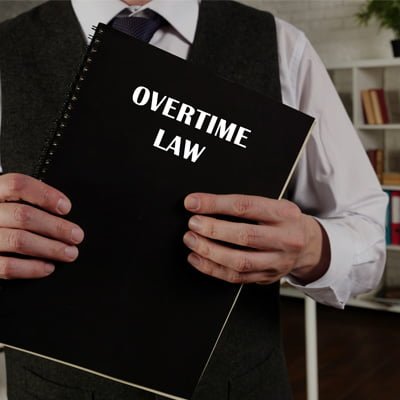Overtime Laws: Arizona : Fair wages and equitable working conditions must be ensured in the quickly changing employment market of today. Having a thorough awareness of and adherence to the overtime regulations is essential to this quest. Laws governing overtime are intended to protect workers' rights, eliminate exploitation, and encourage a good work-life balance.
These laws are essential in the state of Arizona for safeguarding employees’ rights and encouraging an atmosphere of justice in hiring procedures.
Determining the Meaning of Overtime Laws
Regulations known as “overtime laws” specify the pay that workers are entitled to when they put in extra time. These regulations’ main goal is to ensure that workers are appropriately rewarded for the extra time they put into their occupations, which helps prevent companies from taking unfair advantage of their workforce.
Aiming to find a balance between the operational requirements of companies and the welfare of their workers, overtime legislation.
The FLSA, or Fair Labor Standards Act
The Fair Labor Standards Act (FLSA) serves as the cornerstone of Arizona’s overtime regulations in the United States. The FLSA, which was enacted in 1938, set the federal standards for minimum wage, allowable workweeks, and overtime compensation.

For each hour worked above 40 in a workweek, qualified employees are entitled to overtime compensation at a rate of 1.5 times their normal hourly rate under the FLSA.
Arizona Overtime Regulations
Each state is free to enact its own labor laws, even though the FLSA provides a foundation for federal overtime requirements. The state of Arizona has passed particular legislation to supplement and, in certain situations, add to the authority of federal laws.
Arizona’s overtime regulations state:
- If a non-exempt employee works more than 40 hours in a workweek, they typically qualify for overtime compensation.
- The standard formula for calculating overtime compensation is 1.5 times the employee’s normal hourly rate.
- If they satisfy specific requirements, some workers, such as those in executive, administrative, and professional roles, may be excused from overtime regulations.
- Since they are exempt from the FLSA, public employees in Arizona are typically protected under state overtime regulations.
Exceptions & Exemptions
While the fundamental goal of overtime legislation is to provide equitable remuneration for additional hours worked, there are exclusions and exceptions that can make these rules more difficult to implement.

Salaried personnel who satisfy particular requirements relevant to their work responsibilities and tasks are frequently excluded. On the other hand, misclassifying workers as exempt when they are not can result in legal problems and significant penalties for companies.
Punishments for Infractions
Making sure that overtime regulations are followed is not only morally right, but also essential for keeping a positive work atmosphere and avoiding legal ramifications. Employers who breach Arizona’s overtime regulations may be subject to fines and the need to make up unpaid wages to workers. Such offenses can also harm a company’s reputation and lower staff morale.
Conclusion
The protection of employees’ rights and the advancement of ethical workplace practices are greatly aided by Arizona’s overtime regulations. These rules seek a balance between the operational requirements of companies and the welfare of employees by establishing criteria for overtime compensation.
Understanding rights and obligations under these laws is crucial for both employers and employees in order to guarantee compliance and maintain a safe working environment.
While overtime laws will definitely confront new difficulties as the labor force changes, their fundamental goal of defending employees’ rights remains as important as ever.
